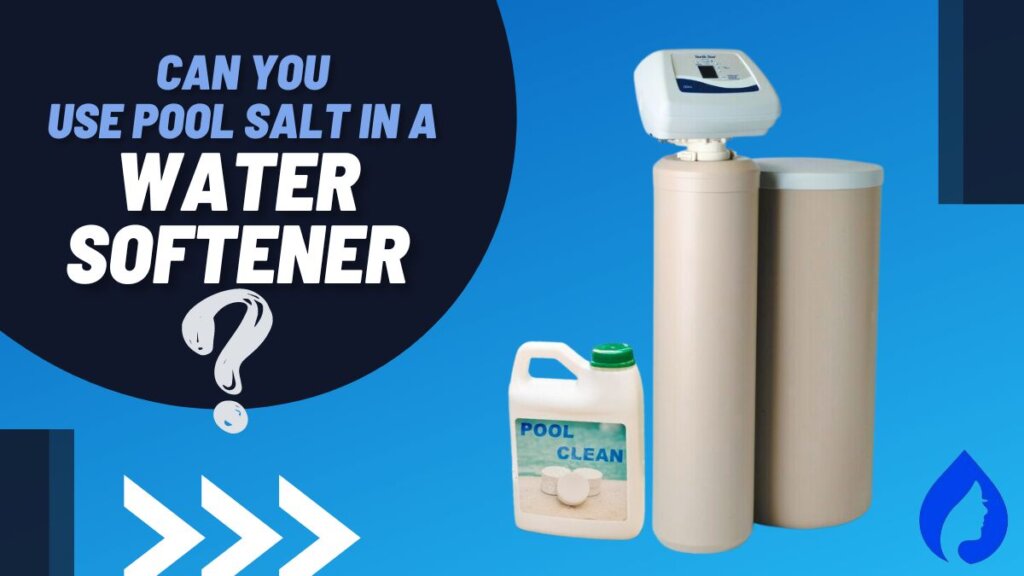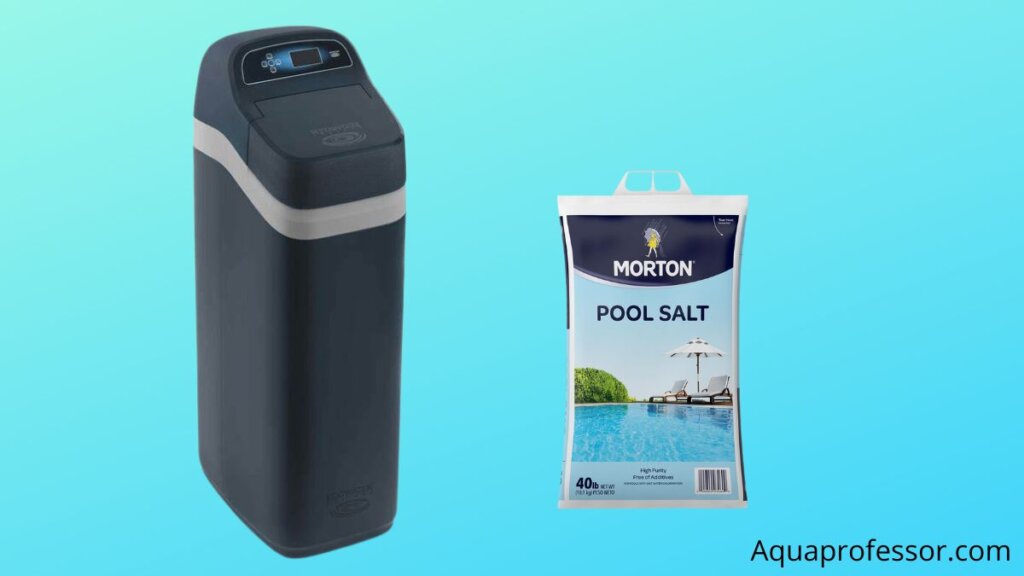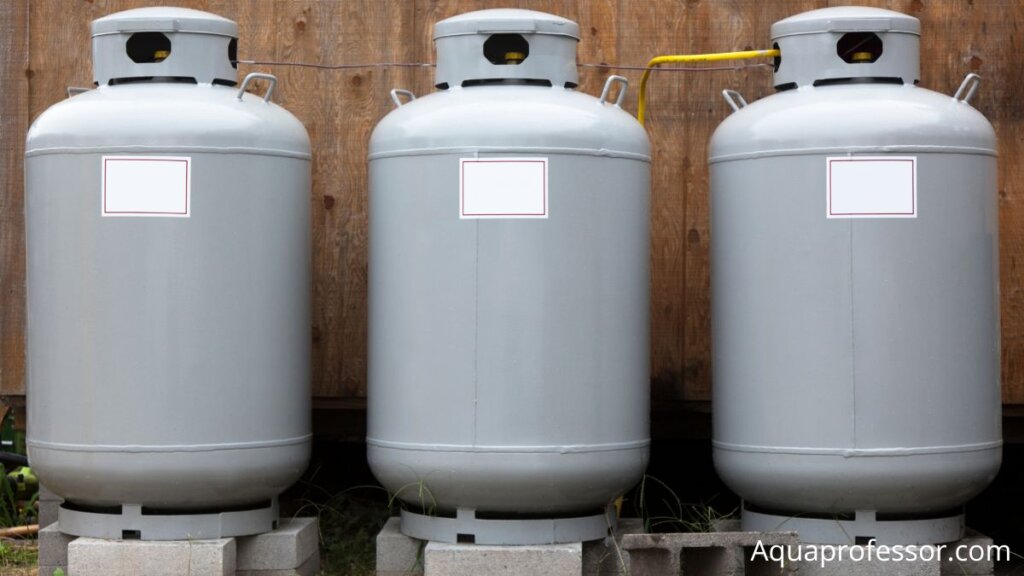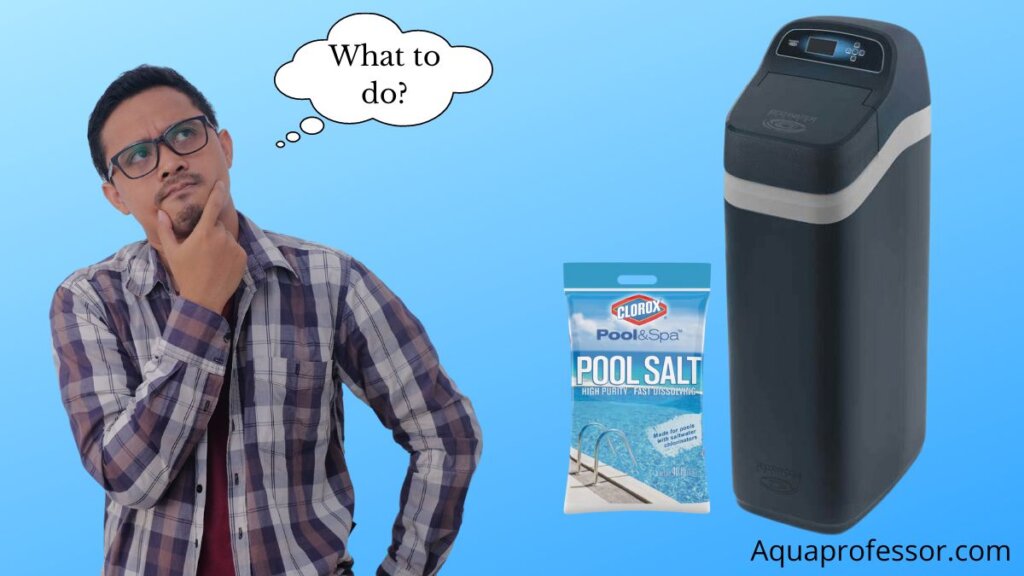
Have you accidentally bought pool salt for your water softener? Can you use pool salt in a water softener?
The answer is no: Using a dense salt like pool salt in your water softener is not ideal. You might use it once or twice at the risk of damaging your expensive device.
This is because the pool salt within the softener results in salt bridge formation, which in turn hampers the effectiveness of the brine collection at the time of the regeneration process.
Continue reading for expert analysis on using pool water salt for your softening system.
🤽♂️ Can You Use Morton Pool Salt in Your Water Softener?

No matter what pool salt brand you use, pool salt are more fine-grained and dissolves faster than softener salt.
Unfortunately, this means it can clog valves on the bottom of the water softener tank.
On the other hand, water softener salts, made explicitly for use in water softeners, are less fine-grained than the disinfecting pool salts usually used in swimming pools and thus don’t dissolve easily.
Here are the effects of using fine pool salt within your water softener in detail:
💠 Affects Softener Regeneration
Being much finer in quality, the grains of the pool salt is highly dense and remain closely bound with one another.
So, it’s very natural that this densely packed salt makes the water softener function like a dense water filter, thus affecting the flow of water in the brine tank.
The problem arises when your water softener tries to initiate the regeneration process by starting the brine draw cycle to draw brine.
When the water softener machine regenerates, the brine ebbs out of the tank and immediately gets diluted with fresh water.
The already drawn-out brine dilutes too much if the brine solution fails to get out of the salt tank quickly.
This affects the effectiveness of the brine in replenishing Na+ (sodium) ions within the softener’s resin.
So, the pool salt reduces the brine draw efficiency, affecting regeneration.
Also Read: How To Reset Water Softener
🔳 Salt Clogging In Brine Tank

Using fine pool salt in your water softener system leads to mushing and the formation of salt bridges. Mushing happens when the dissolved salt recrystallizes.
Due to mushing, different hard and compact layers of the salt are formed over the residing salt in the form of salt bridges.
Because of this, the salt fails to get dissolved in the water. It slows the process of brine formation.
Besides, mushing may also result in the blockage of the brine draw pipe, thus preventing proper regeneration.
Also Read: Is It Better to Use Water Softener Pellets or Crystals?
🧂 Excess Sodium In Soft Water
Pool salt is a dense salt sprinkled in pool water to treat algae. If used in a water softener, it causes salt overload in the resin.
Its dense texture compels the softener to behave like a dense water filter, drawing more salty brine solution as it flushes salt water out of the resin tank.
Hence, the resin tank is left with excess saline brine solution, resulting in unnaturally salty water.
🚱 Clogging of Softener Valves
When water softener salt dissolves in the brine tank’s water, it creates a salty solution that causes the salt particles to shrink. These particles were initially quite large.
As a result, the salt grains don’t clog the control valve of the water softener system.
The swimming pool salt comprises refined tiny particles. So, being tinier, they get deposited into the machine’s water softener valve after dissolving into water. This clogs the valve.
For unclogging the water softener valve, periodic flushing may help. However, if it doesn’t work, you must call a professional.
💡Note:
You should always keep your brine tank’s ¼ part occupied with salt to prevent salt bridging. Also, ensure the salt doesn’t exceed 4-6 inches from the top but stays somewhat above the water level.
Also Read: How Long Can A Water Softener Go Without Salt?
🤔 Accidentally Put Pool Salt In the Water Softener: What To Do Next?

In case you accidentally bought pool salt (that is made for cleansing algae-rich pool water and also pool equipment) and put it within your water softener’s brine tank, do the following:
Also Read: Can Softener Salt Melt Ice?
🏊♂️ Can You Use Pool Salt In A Water Softener FAQs
Is pool salt different from water softener salt?
Pool salt is small and refined. It is used for disinfecting swimming pools and various pool equipment from algae.
Water-softening salts are coarser salt pellets that don’t melt quickly. They are used in water softener tanks that store brine to soften hard water.
Does it matter what salt I use in a water softener?
Yes, the salt you use in your water softener matters because it affects-
1. How the water softener regenerates
2. How often to clean the brine tank (the reservoir alternate with the ion exchange resin tank)
3. How much sodium is added to soft water (large quantity of sodium results in the generation of salty water)
4. How often to clean the injector
So, always use evaporated pellet salt in your water softening device and not pool water salt or any other salt (driveway salt like rock salt that is high in impurities) instead of it.
Pouring pool salt within your water softener brine tank makes the softener behave like a dense, undesirable water filter.
Is there an alternative to salt for a water softener?
Yes, potassium chloride salt is the salt that may be used as a substitute for water softener salt.
Unlike traditional water-softening salts, it has low sodium content and 99.1 percent pure KCl (potassium chloride). So, it is septic-friendly and doesn’t add sodium to the water.
Also, this salt’s crystals (preferably diamond-shaped crystals) are less insoluble and hence don’t stay behind within the water softener tank in the form of residue.
However, the potassium chloride salt for a water softener is very expensive. Also, it is 80% as effective as other salt types.
So, coarse salt, like water softener salt, is always recommended while running your water softener machine.
Can you mix potassium chloride and sodium chloride in a water softener?
Yes, you can safely mix potassium chloride (KCl) with sodium chloride (NaCl) in your regular water softener. It doesn’t hamper the performance of the softener in any way.
Both kinds of salt will quickly dissolve in water, generating the brine through the normal process.
Also, as usual, the brine will travel through the device’s brine draw pipe before it reaches the resin tank.
What is the difference between water softener salt and salt pellets?
Water softener salt crystals are naturally made salt crystals resulting from the evaporation of shallow pond water.
So, they are tinier in size and have irregular shapes. Salt pellets or tablets form through the compaction of salt granules.
Therefore, they are relatively large and are less likely to cause bridging.
Adarsh is a Health & Nutrition Sciences graduate with expertise in environmental health. He is associated with ventures like Glacier Fresh Filter and Simpure Filter Systems. Through Aqua Professor, he intends to provide helpful information to every home to help them make smarter decisions.

All very good information.
Thank You Steve!